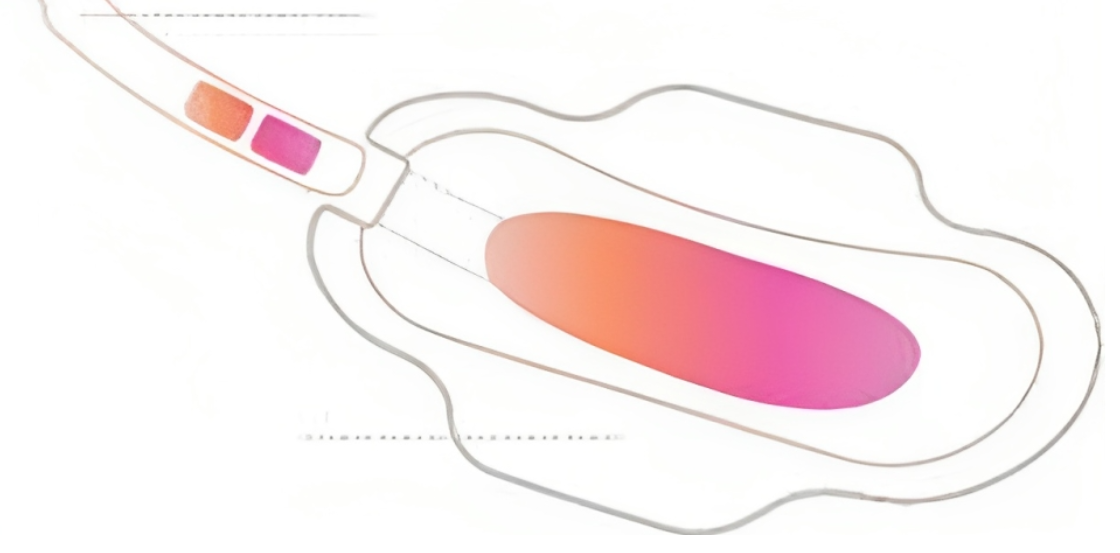Post link copied to clipboard!

Approximately 800 million people worldwide experience menstruation daily, yet menstrual blood remains a largely uncharted territory in medical research. Dr Sara Naseri, a medical professional, aims to revolutionise this field through her healthcare startup, Qvin. Her mission is to harness the largely ignored monthly blood sample for groundbreaking health insights.
Developing technology for menstrual blood testing poses unique challenges, primarily due to the scarcity of prior research. During their medical school period, Dr. Naseri discovered just one study from 2012 that delved into menstrual blood, identifying 385 unique proteins.
In addition to blood, menstrual fluid contains vaginal secretions, cervical mucus, and endometrial cells. The endometrium, a membrane uterus lining, thickens each month to facilitate embryo implantation. When pregnancy doesn’t occur, this lining naturally shed through the vagina.
Dr Naseri reflects on the statement, “Blood is the most commonly used bodily fluid for medical decision-making. I wondered, ‘Why hasn’t anyone harnessed this blood for health purposes?'” The Qvin team is diligently working to bridge this research gap through studies.
The initial findings from Qvin’s research are promising. It demonstrates that menstrual blood can effectively monitor blood sugar and cholesterol levels. Building on this research, Qvin has developed a menstrual blood testing pad, currently undergoing assessment by US health regulators.
The future holds potential for non-invasive methods to diagnose and treat conditions impacting the female reproductive system. A lack of research in this field has resulted in slow diagnosis times, limited treatment options, and often painful tests for patients.
In the UK, only 2.1% of medical research funding is allocated to reproductive conditions, despite 31% of women experiencing severe reproductive health issues. Additionally, less than half of those affected seek medical assistance. Testing menstrual blood faces a lack of research, societal resistance, and taboos.
Berlin-based startup Theblood faced difficulties finding a lab partner willing to analyse menstrual blood samples. Co-founder Miriam Santer highlights the challenges, stating, “We have to start from scratch, right from the very beginning. Labs readily test saliva, urine, or stool samples, but there’s simply no infrastructure for menstrual blood.”
Dr Christine Metz, an endometriosis researcher, believes that the “stigma factor” has hindered research into period blood. However, she notes a shift in perception, with thousands of individuals willing to participate in menstrual effluent studies when reached out through social media.
Historically, clinical gynaecology has never included menstrual blood testing. Endometriosis, a common gynaecological condition, affects roughly 10% of women and girls. Diagnosis can take up to 12 years and often requires surgery, as effective treatments are lacking.
Progress is gradually being made, partly due to advocates like Lena Dunham and Padma Lakshmi raising awareness. Despite this, current endometriosis treatments involve hormones with severe side effects, and even a hysterectomy doesn’t guarantee lesion removal.
Securing funding for menstrual blood research has been challenging, as Dr Metz notes, “I’m constantly told, ‘You should focus on cancer research; there’s much more funding available.’ It’s an uphill battle to secure even minimal funding.”
Companies like Qvin and Theblood rely on venture capital funding to support their studies, aiming to demonstrate the value of menstrual blood tests as consumer products. However, explaining menstrual concepts to investors, such as tampons, sanitary pads, and menstrual cups, is often necessary.
Home-testing solutions could offer convenient screening for specific conditions. Ashley Draper, who participated in a Qvin study on menstrual blood for cervical cancer screening, highlights the need for change. She believes such testing could reduce healthcare costs, empower patients, and provide more control over their health outcomes.